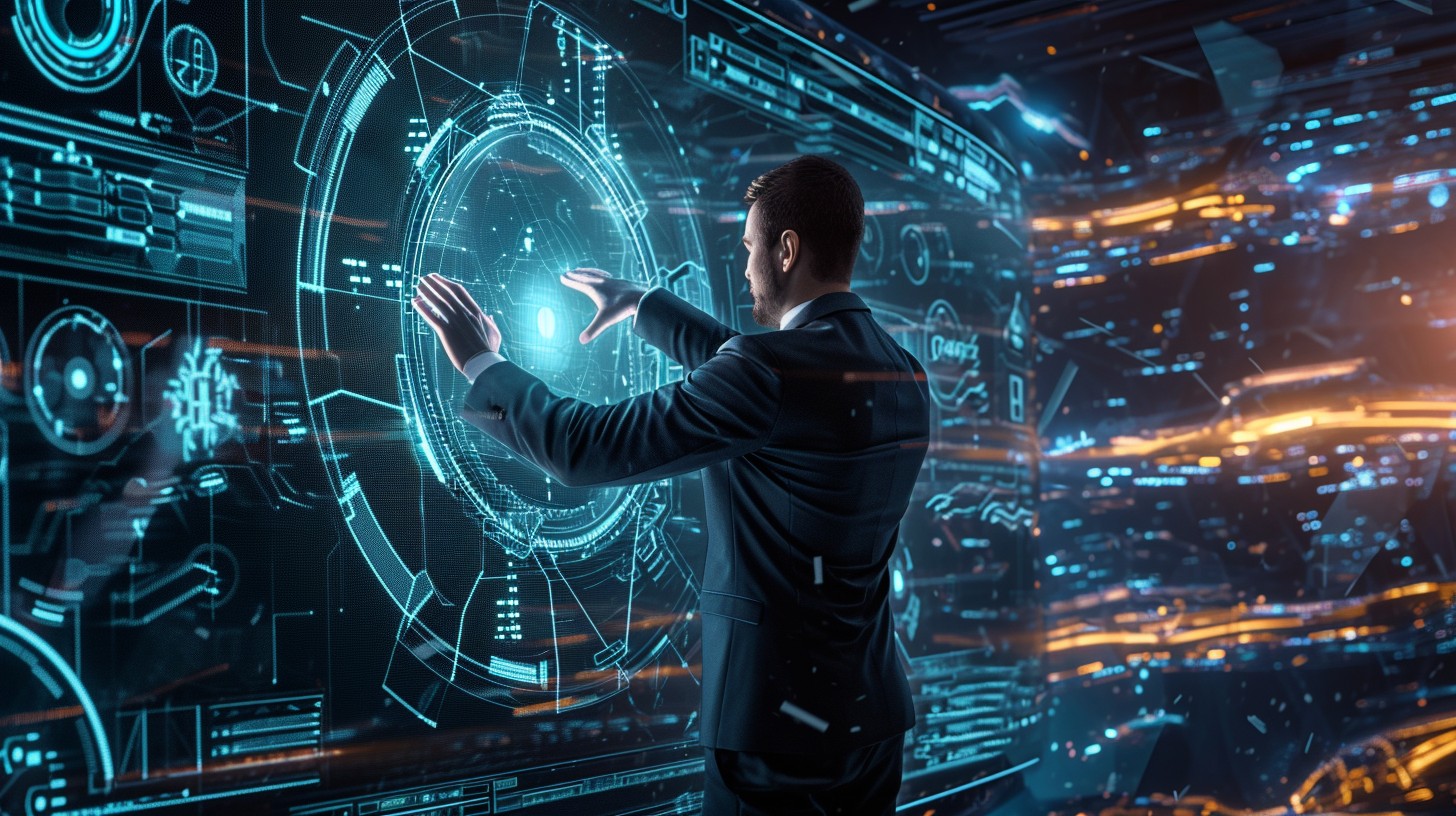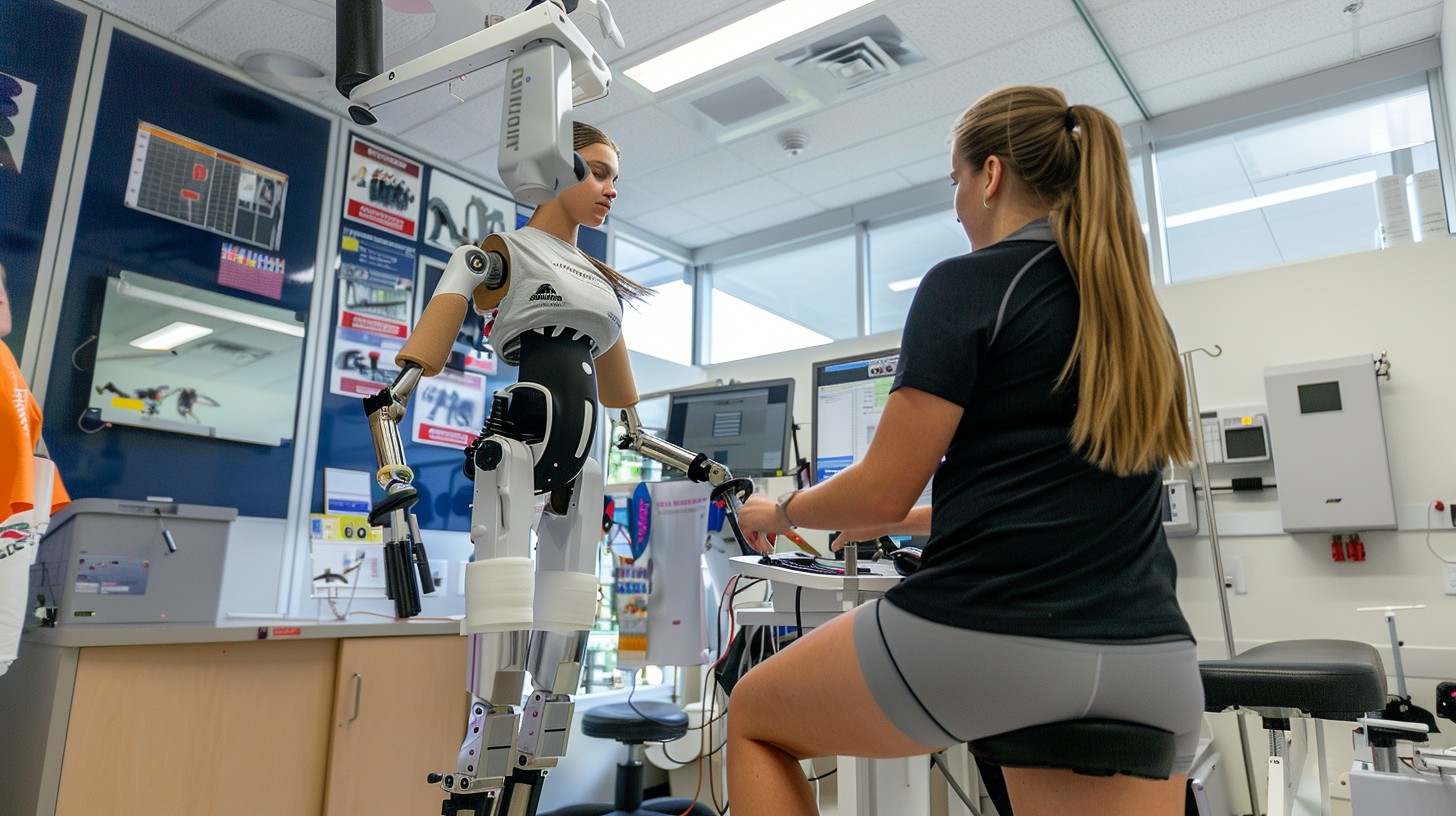Breaking Boundaries. In today’s rapidly evolving world, technology continues to break barriers, reshaping industries and pushing the limits of human achievement. As we stand on the cusp of the next technological revolution, several breakthrough innovations are poised to change our reality, transforming how we interact with the world and each other. These emerging technologies not only promise to enhance our lives but also redefine industries, economies, and the future of human existence.
1. Artificial Intelligence (AI) and Machine Learning (ML): Shaping the Future of Automation
Artificial intelligence has made significant strides in recent years, and its impact is already being felt across industries. AI, combined with machine learning (ML), allows systems to learn from data, identify patterns, and make decisions with minimal human intervention. The future promises even greater AI integration, with potential applications ranging from healthcare diagnostics and personalized treatment plans to self-driving cars and autonomous industries. Breaking Boundaries.
Companies are harnessing AI-powered algorithms to streamline operations, improve customer experiences, and make sense of vast amounts of data. From predictive analytics to natural language processing, AI’s role in enhancing automation and decision-making will only grow, making it one of the most transformative technologies on the horizon. Breaking Boundaries.
2. Quantum Computing: Revolutionizing Problem Solving
One of the most groundbreaking advancements in computing, quantum computing, is set to revolutionize industries that rely on complex problem-solving capabilities. Breaking Boundaries. Unlike traditional computers, which process information in binary (0s and 1s), quantum computers use qubits, enabling them to perform multiple calculations simultaneously.
Quantum computing holds the potential to transform fields such as cryptography, drug discovery, and material science. Industries will soon experience an accelerated ability to solve problems once deemed impossible, pushing the limits of what we thought was achievable.Breaking Boundaries Technologies on the Verge of Changing Reality, we are on the verge of unlocking an entirely new era of computational power.
3. 5G and Beyond: The Future of Connectivity
The rollout of 5G technology is already transforming the digital landscape, providing faster speeds, reduced latency, and increased connectivity. But this is just the beginning. 5G technology opens up new opportunities in fields such as virtual reality (VR), augmented reality (AR), and the Internet of Things (IoT). It will allow connected devices to communicate more efficiently, unlocking new potential for smart cities, autonomous vehicles, and industrial automation.
As industries adopt 5G infrastructure, the world will become more interconnected than ever before, paving the way for a digital revolution that will reshape not just communication, but transportation, healthcare, entertainment, and more.
4. Blockchain and Decentralized Finance (DeFi): Redefining Trust and Transactions
Blockchain technology, which underpins cryptocurrencies like Bitcoin and Ethereum, is set to change the way we handle transactions and contracts. At its core, blockchain is a decentralized ledger that provides transparency, security, and trust in financial transactions without the need for intermediaries such as banks.
But the impact of blockchain extends far beyond cryptocurrency. With the rise of decentralized finance (DeFi), new financial models are emerging that offer individuals and businesses direct access to financial services, such as loans, without relying on traditional institutions. Blockchain also has applications in supply chain management, healthcare, and digital identity, making it a transformative technology that can improve security and efficiency across multiple sectors.
5. Autonomous Systems: The Rise of Robots and Drones
Autonomous systems, such as self-driving cars and drones, are changing how goods are transported, how we navigate, and how industries operate. These systems are powered by advances in AI, sensors, and data analytics, allowing machines to operate with minimal human intervention.
In the transportation sector, autonomous vehicles will reduce accidents, improve fuel efficiency, and increase mobility for individuals unable to drive. Drones are also revolutionizing sectors such as logistics and agriculture, where they are used for deliveries, crop monitoring, and surveying large areas quickly. The increasing adoption of autonomous systems will bring about unprecedented changes in multiple industries, paving the way for a future driven by automation.
6. Extended Reality (XR): Merging Digital and Physical Worlds
Extended reality (XR) is an umbrella term that encompasses virtual reality (VR), augmented reality (AR), and mixed reality (MR). These technologies are merging the digital and physical worlds, transforming how we interact with information, entertainment, and each other.
VR offers immersive experiences that transport users to entirely digital environments, revolutionizing gaming, training, and entertainment. AR overlays digital content onto the physical world, enabling applications such as remote assistance, product visualization, and education. MR, the most advanced form of XR, seamlessly blends the real and virtual worlds, allowing users to interact with both simultaneously.
As XR technology continues to evolve, its applications will expand into areas such as healthcare (for surgical simulations), real estate (for virtual property tours), and education (for interactive learning experiences). XR promises to redefine how we experience reality, blurring the lines between the physical and digital realms.
7. Biotechnology and Genetic Engineering: Editing the Code of Life
Biotechnology and genetic engineering are on the verge of transforming medicine, agriculture, and the environment. Advances in CRISPR gene-editing technology allow scientists to modify DNA with unprecedented precision, opening up possibilities for curing genetic diseases, developing more resilient crops, and addressing environmental challenges.
Gene editing has the potential to eradicate inherited diseases and extend human life expectancy. It could also revolutionize agriculture by producing crops that are resistant to pests, drought, and disease, ensuring food security in a world facing climate change. As these technologies advance, they will not only enhance the quality of life but also reshape our understanding of biology and the future of the human race.
8. Internet of Things (IoT): Connecting Everything
The Internet of Things (IoT) refers to the network of connected devices that communicate with each other over the internet. From smart home appliances to industrial sensors, IoT is creating a more intelligent, automated world where machines can monitor, analyze, and respond to data in real-time.
As IoT devices become more widespread, they will revolutionize industries such as healthcare, manufacturing, and transportation. For example, smart cities will use IoT to optimize traffic management, reduce energy consumption, and improve public safety. IoT will also play a crucial role in industries such as healthcare, where wearable devices can monitor patients’ health in real-time and alert medical professionals to potential issues before they become critical.
9. Renewable Energy: Powering a Sustainable Future
As the world grapples with climate change and the need for sustainable solutions, renewable energy technologies are breaking boundaries in the energy sector. Innovations in solar, wind, and hydropower are making clean energy more affordable, reliable, and accessible.
The development of energy storage systems such as advanced batteries is also crucial to the widespread adoption of renewable energy. These systems allow for the efficient storage and distribution of energy generated from renewable sources, ensuring a consistent power supply even when the sun isn’t shining or the wind isn’t blowing. The shift toward renewable energy is not just about environmental responsibility—it is also about creating new economic opportunities and transforming the global energy landscape.
Conclusion: The Dawn of a New Era
As we look to the future, these technologies are Breaking Boundaries and pushing the limits of what we thought possible. From AI and quantum computing to biotechnology and renewable energy, these innovations are on the verge of changing reality itself. The next decade will be defined by the intersection of these technologies and their profound impact on society, business, and daily life.



